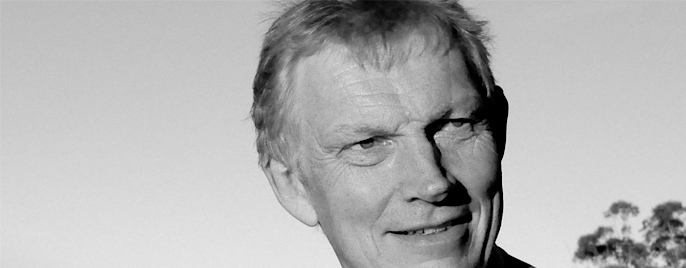Dominic Case literally wrote the book on film laboratories. Two of them, in
fact. The second one, "Film Technology in Post Production", became an
international reference text, and was translated into German and Spanish.
After starting out in an English film laboratory, Dominic arrived in
Australia in 1974: perfect timing to ride the wave of the Australian Film
Renaissance. As Technical Manager at Colorfilm in Sydney he introduced
computers to the laboratory environment very early on, developing programs
to manage quality control in processing. He was involved in the development
of the Colormaster color analyser in the 1980s, giving him a head start in
understanding digital colour space; but his main involvement with editors
came when non-linear editing swept the world at the start of the 1990s.
At Colorfilm he had developed a program that converted edit decision lists
to negative cutting lists: but then Colorfilm closed down, so the program,
called Timecutter, was merged into a similar system called Excalibur, which
also logged the new Keykode edge numbers. Dominic became the Australian
representative for Excalibur. It turned out that the differences between
24fps film and 25fps video caused endless confusion, and he was one of about
three people in Australia whose phone would ring every day with pleas for
help in sorting out 24 to 25 conversions. The experiences were serialised
in the Screen Editors' newsletter under the title "Why doesn't your cutting
list match my EDL?". Later in "In Case You Asked" he gave light-hearted
answers to other lab questions. He was a keen observer of the changes that
non-linear technology brought to every aspect of editing, from cutting
styles to assistant editors' training paths, writing papers and chairing
conference discussions about it all.
He worked at Atlab (now Deluxe) for twelve years, latterly as Director of
Communications, then, and until recently, at the National Film and Sound
Archive, including a short spell as Acting Senior Film Curator. He was a
Board Member of the Australian Film Commission from 2003 to 2008, and is a
Fellow of both the Society of Motion Picture & Television Engineers and the
British Kinematograph Sound and Television Society. Currently he works when
the opportunity arises as a film technology and strategy consultant.
Full Life Membership of the ASE was conferred on Dominic Case in 2008, in
recognition and appreciation of his generous and good humoured contribution
to editing and the guild.
